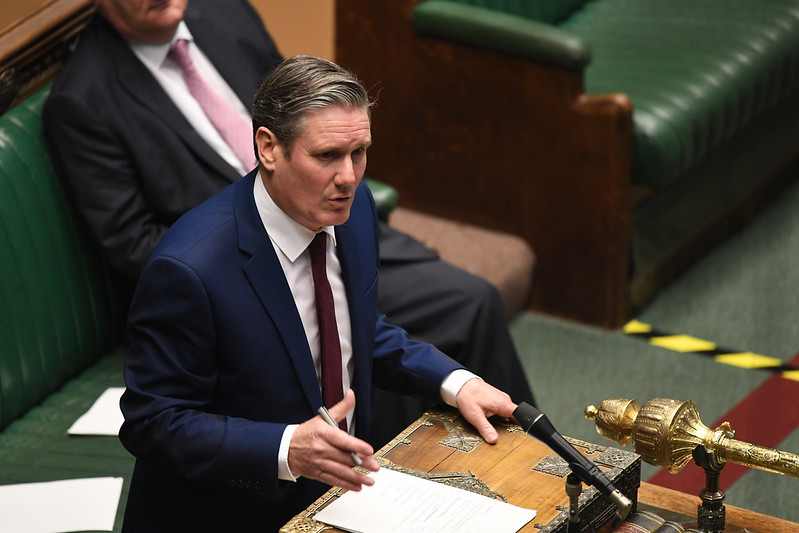As is customary at the TUC Congress, the leader of the Labour Party gave a speech to the assembled delegates and General Council. Given Keir Starmer’s previous poor stakeholder management with Labour’s affiliated trade unions and the knots he tied himself up in over picket lines this looked as though it would be an interesting speech. While what can be gleaned from a speech is limited, given they are all a piece of theatre, they are still worth discussing. Starmer’s speech had that weird mix of seeming like it was written for two different audiences. Parts of it were written for the delegates in the room and parts of it were written to be clippable and put on social media for a wider audience (one suspects that we will see more of “That’s the Labour choice” refrain in the future). However, the part that was aimed at trade unionists was interesting.
Firstly, there were the policy commitments, Starmer trumpeted Labour’s New Deal for Working People, echoing what was said by his deputy Angela Rayner at a fringe meeting the night before. Amongst other pledges, Starmer pledged that Labour would:
- End fire and rehire
- Ban zero-hour contracts
- Extend parental leave
- Strengthen flexible working
- Improve protections for pregnant women
- Mandatory reporting on ethnicity pay gaps
- Provide Sick pay for all workers
- Repeal the 2016 Trade Union Act and any new restrictions on trade unions
All this would be done via a bill within the first hundred days of a Labour government. While the specific form of some of these pledges is not currently clear, they are definite policy commitments. However, the most interesting part of the speech was when Starmer attempted to bluntly set out what he saw Labour’s relationship with trade unions as:
We must fight in different ways. Must accept that when it comes to delivering for working people, we have different jobs. I support the right to strike – unequivocally… You’re representing the democratic choice of your members. You’re doing your job. I respect that. But my job is different. The single most important thing I can do for working people is to make sure we win the next election and get a Labour Government. That’s how we roll-out our Green Prosperity Plan. How we deliver the New Deal for Working People. How we create a modern industrial strategy together. None of this happens unless Labour is in power. So I will never be ashamed to say my Labour Party wants to increase worker power in our economy. But nor will I apologise for approaching questions on industrial action as a potential Labour government.
His message was essentially: ‘Wink wink, nudge nudge, you need me and please don’t think too much about things I say about picket lines.’ The clarity was refreshing, though Starmer saying that he would give answers as a government would is not quite borne out by his evasiveness when it comes to questions such as pay rises and what should be the way forward in disputes. An actual government-in-waiting has an idea and a clear sense of direction. Starmer’s conception of the role of Labour and trade unions makes the relationship between the two more transactional and less symbiotic, but it is probably already going that way anyway given the decreasing number of MPs who come from the trade union movement.
Starmer also subtly acknowledged the certainty of future discord when he articulated that the economic recklessness of the Conservative had dented public finances and Labour would have to be sensible about what it could invest in. This translates as ‘Labour will not be able to fund everything that trade unions want, blame the other lot for this’. He is probably not wrong but that will not make the reality of disputes any easier and there will be some friction when not all of the restrictions on industrial action are removed. For instance, it is hard to see Labour legislating in favour of secondary action and secondary picketing.
The reception to the speech from some quarters of the trade union movement highlighted the fundamental issue of Starmer’s relationship with trade unions (and the rest of the labour movement): he is a neophyte politician and does not have the credit in the bank that politicians who have been involved in the labour movement for decades have. That may change if Labour wins an election and enacts the policies it has pledged. Then there would subsequently be a strong argument that his party were, in practical terms, the most pro-union Labour government ever, as Starmer said his government would be at a recent address to the Community trade union (though it is curious he did not make this statement to Congress). Although it is platitudeness, actions speak louder than words, and until Keir Starmer leads Labour into power we will not know if he makes good on his offer to trade unions.


